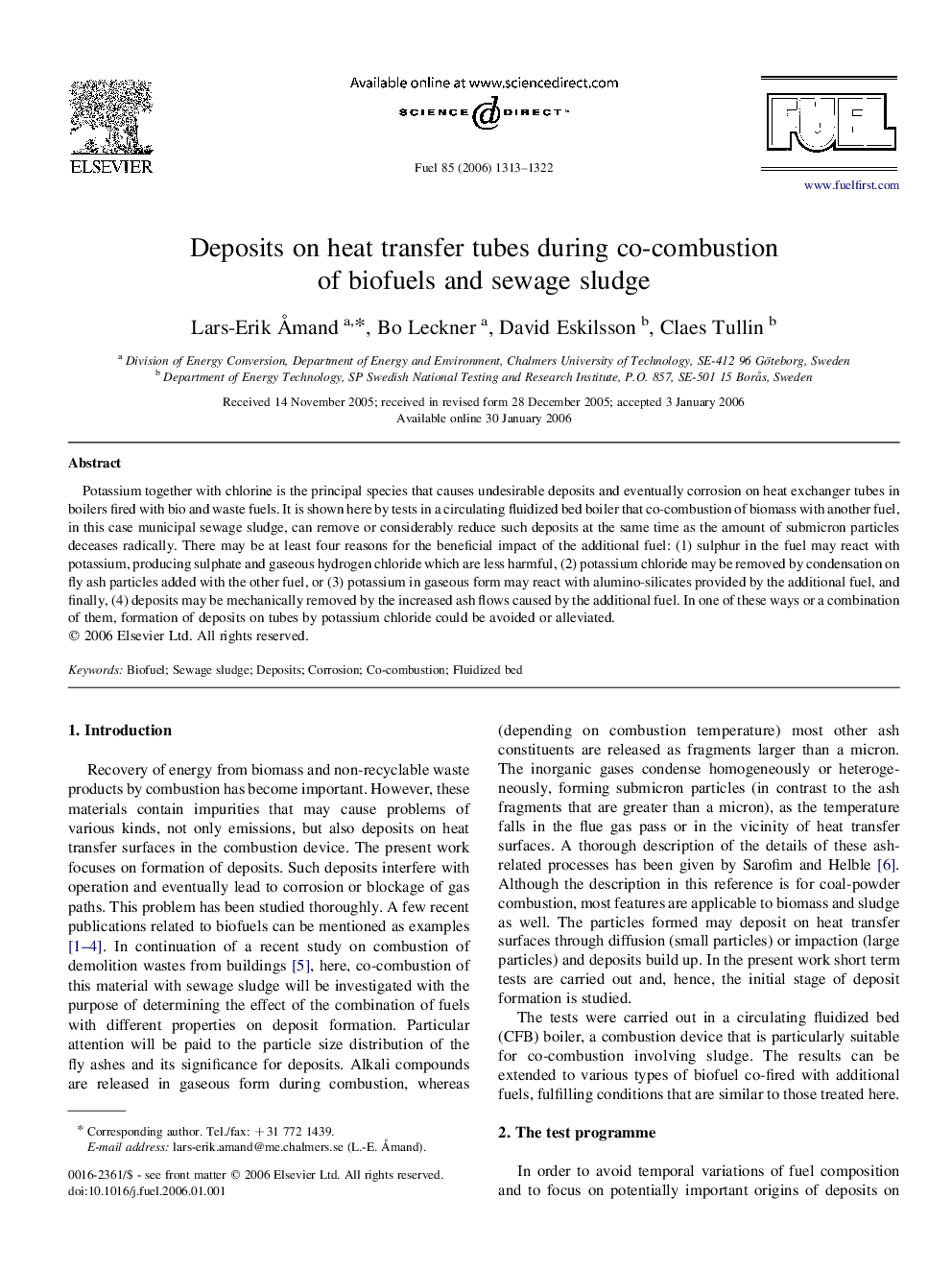| Article ID | Journal | Published Year | Pages | File Type |
|---|---|---|---|---|
| 208546 | Fuel | 2006 | 10 Pages |
Potassium together with chlorine is the principal species that causes undesirable deposits and eventually corrosion on heat exchanger tubes in boilers fired with bio and waste fuels. It is shown here by tests in a circulating fluidized bed boiler that co-combustion of biomass with another fuel, in this case municipal sewage sludge, can remove or considerably reduce such deposits at the same time as the amount of submicron particles deceases radically. There may be at least four reasons for the beneficial impact of the additional fuel: (1) sulphur in the fuel may react with potassium, producing sulphate and gaseous hydrogen chloride which are less harmful, (2) potassium chloride may be removed by condensation on fly ash particles added with the other fuel, or (3) potassium in gaseous form may react with alumino-silicates provided by the additional fuel, and finally, (4) deposits may be mechanically removed by the increased ash flows caused by the additional fuel. In one of these ways or a combination of them, formation of deposits on tubes by potassium chloride could be avoided or alleviated.
